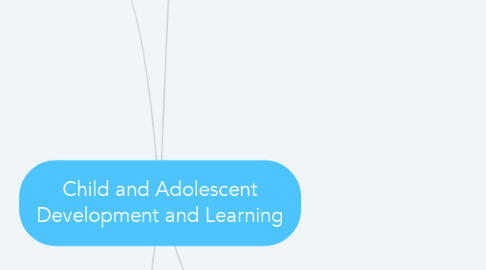
1. Humanistic
1.1. Lived Experiences
1.1.1. Originally
1.1.1.1. I was motivated due to external factors such as family expectations
1.1.1.2. school did not allow me to self-acutalize, I supported myself in doing so outside of school and while exploring my interests
1.1.1.3. race and class factors resulted in high motivation
1.1.1.4. high pressure
1.1.2. Now
1.1.2.1. hopeful that I can help my students in exploring their full self
1.2. Motivation
1.2.1. Teaching:
1.2.1.1. support self-actualization
1.2.1.2. support self-determination
1.2.1.3. provide student autonomy in learning
1.2.1.4. mind-body-spirit connection
2. Self, Social and Moral development
2.1. Ericksson's Stages of Development
2.1.1. Teaching:
2.1.1.1. adolescents: identity formation and social roles
2.1.1.1.1. help students understand their identity through classroom tasks
2.1.1.1.2. civic education: how can students help undo oppression in the world?
2.1.1.1.3. help students understand ideology
2.2. Bronfenbenner's Social Context for Learning
2.2.1. Teaching:
2.2.1.1. school is in microsystem, lots of time spent here
2.2.1.2. investigate media, home environments and how they affect my students' development
2.3. Lived Experiences
2.3.1. Originally
2.3.1.1. my school was progressive, so I valued equality and equity
2.3.1.2. school socialized me into a liberal ideology
2.3.1.3. felt supported
2.3.2. Now
2.3.2.1. school can be harmful in perpetuating negative ideologies and promoting status quo
2.3.2.2. hopeful that i can support students in understanding ideontity, ideology
3. Culture and Diversity
3.1. Lived Experiences
3.1.1. Originally
3.1.1.1. was labelled smart while growing up, and "gifted"
3.1.1.1.1. grew to develop an anxiety disorder
3.1.1.1.2. high pressure
3.1.1.2. South Asian, Muslim but grew up in a small white town
3.1.1.2.1. lack of culturally responsive pedagogy experienced, did not feel included at school
3.1.1.2.2. racism and oppression was perpetuated within my school
3.1.2. Now
3.1.2.1. aftere receiving anti oppressive and critical education, i feel much happier
3.1.2.1.1. hopeful students receive this in their teenage years, as I didn't
3.2. Teaching:
3.2.1. support students from all race, genders, and classes
3.2.1.1. anti oppressive education
3.2.1.1.1. break down biases, stereotypes within the classroom
3.2.1.2. foster inclusion in diverse classrooms
3.2.1.2.1. implement culturally responsive pedagogy
3.2.2. achievement gap
3.2.2.1. support students from low income backgrounds
3.2.2.1.1. financial support
3.2.2.1.2. help meet life needs
3.2.2.1.3. provide extra academic support
3.2.2.1.4. relationship-building
4. Cognitive Development
4.1. Piaget's Cognitive-Developmental Theory
4.1.1. Teaching:
4.1.1.1. colonial idea: "normal" form of development and based on white male experiences
4.1.1.2. support students regardless of the speed of their development
4.1.1.3. Decolonizing using Indigenous worldviews around time & place: recognize the place and community students are from
4.1.1.4. Avoid using labels
4.1.1.4.1. students with intellectual, developmenta lnd learning disabilities seen as abnormal
4.1.1.4.2. strengths baed approach to teaching
4.1.1.5. my students will be in the formal operationtal stage
4.1.1.5.1. abstract thinking, hypothetical and scientific thinking needs to be incorporated within the classroom
4.2. Vygotsky
4.2.1. Teaching:
4.2.1.1. learning as lifelong
4.2.1.2. society constructs students development
4.2.1.3. differentiated instruction, project based learning, student driven learning
4.2.1.4. support students in understanding the world
4.3. Lived Experiences
4.3.1. Originally
4.3.1.1. want to help students understand broad political momenet
4.3.2. Now
4.3.2.1. hopeful that students can challenge dominant societal beliefs
4.3.2.2. hopeful that students can unlearn trauma and heal from abuse
